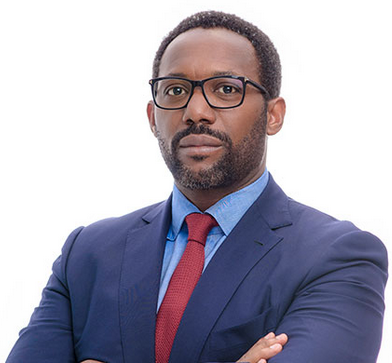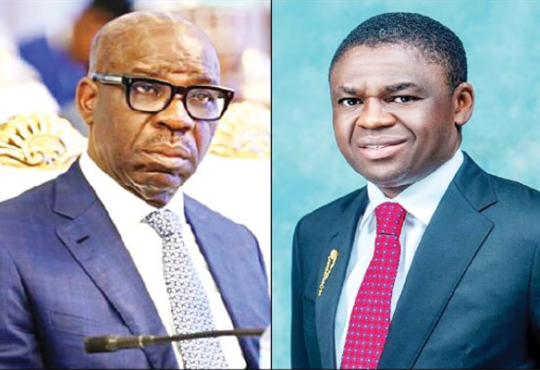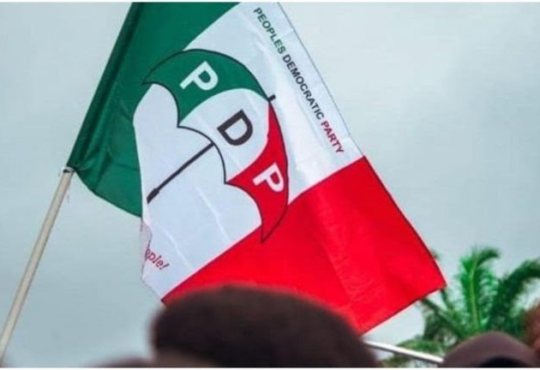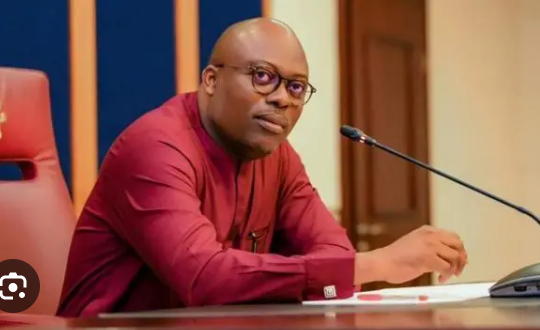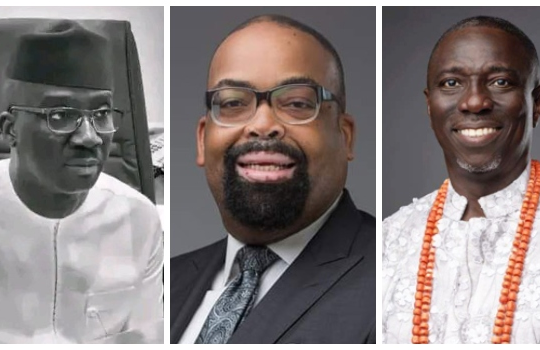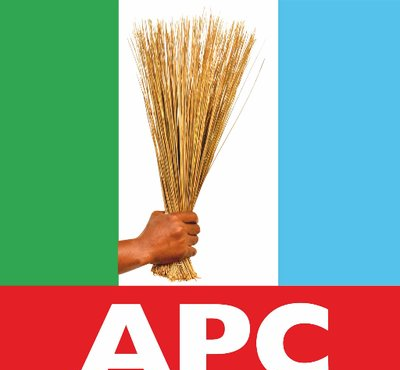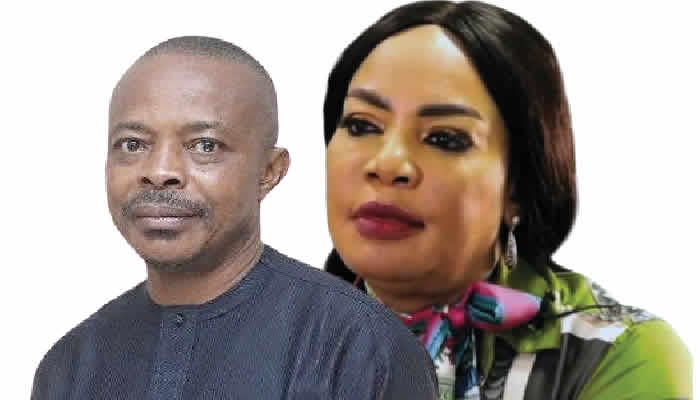
With the minimum wage controversy taking new shape daily, IMOLEAYO OYEDEYI examines the controversy over the financial capacity of state governments and Organised Private Sector vis-a-vis the demands of the Organised Labour
For weeks, the Federal Government, state governments, and Organised Labour have been on a warpath over the new minimum wage that should be payable to Nigerian workers for the next five years. The last minimum wage came into effect in 2019 when it was pegged at N30,000, a significant increase from the N18,000 established in 2011.
Going by the 2019 National Minimum Wage Act, which mandated that the minimum wage should be reviewed every five years, the Organised Labour, since the beginning of 2014, has been calling for a comprehensive reassessment and adjustment of the national minimum wage.
In their calls, the labour unions said that the new minimum wage must be appreciable enough to rescue an average Nigerian worker from the prevailing economic hardship afflicting the land, which has become worsened since the removal of the petrol subsidy and floating of the naira by the current administration.
They argued that in 2019 when the last minimum wage was set at N30,000, the naira was being exchanged at N360 per dollar, while the food inflation rate was 11.4 per cent. However, given the fact that both the exchange rate and inflation rate have surged to N1,516 per dollar and 33 per cent respectively in less than five years, the Organised Labour said the new minimum wage must reflect the current spike, especially because the petrol subsidy removal had brought about more monthly income for the three tiers of governments in the country.
On the other hand, the Federal Government and Presidency said that even though there was a need for a higher national minimum wage, its negotiation should be rational and tempered within economic realities and the capacity of both the government and Organised Private Sector to pay to avoid plunging the country into severe financial crisis and massive job losses due to mass retrenchment of workers.
While Labour initially demanded N615,000 for the new minimum wage, they later reduced this to N494,000 as the negotiations dragged on, before finally crashing the demand to N250,000. But the government and OPS have stoutly kept their offer far below Labour’s quotations. The government initially offered N57,000. But following a strong resistance that culminated in industrial action by labour unions, the Federal Government, having reached an agreement with the OPS, increased the offer to N62,000, saying it could not go beyond that limit for obvious reasons.
The Minister of Information and National Orientation, Mohammed Idris, in a statement by his media aide, Rabiu Ibrahim, last Saturday said the Federal Government would be expending nearly N9.5tn annually on workers’ salaries going by the demand of the labour, describing this as an untenable burden for the country’s finances.
Recall that during his nationwide broadcast to commemorate the 25th anniversary of Nigeria’s democracy on Wednesday, June 12, President Bola Tinubu announced that a consensus had been reached on the long-debated new minimum wage between the Federal Government and the Organised Labour. In the national broadcast, the President revealed that an executive bill would soon be sent to the National Assembly to formalise the new minimum wage agreement.
He stated, “In this spirit, we have negotiated in good faith and with open arms with Organised Labour on a new national minimum wage. We shall soon send an executive bill to the National Assembly to enshrine what has been agreed upon as part of our law for the next five years or less.”
However, in a swift reaction, the Organised Labour said it had not reached any agreement with the Federal Government Tripartite Committee on the new minimum wage as claimed by the President. In a statement on Wednesday, the acting President of Nigeria Labour Congress, Prince Adewale Adeyanju, said there was no agreement reached by the Tripartite Committee on the National Minimum Wage when negotiations ended on Friday, June 7, 2024.
Adeyanju stated that at the last meetings, the demand remained N250,000 from the Organised Labour and that anything to the contrary won’t be accepted. He said, “Our demand remains N250,000 only, and we have not been given any compelling reasons to change this position which we consider a great concession by Nigerian workers during the tripartite negotiation process.
“We are, therefore, surprised at the submission of Mr President over a supposed agreement. We believe that he may have been misled into believing that there was an agreement with the NLC and TUC. There was none and it is important that we let the President, Nigerians, and other national stakeholders understand this immediately to avoid a mix-up in the ongoing conversation around the national minimum wage,” he stated.
However, the state governors have vehemently opposed the offers and demands so far made by the Federal Government, OPS, and Organised Labour on the new minimum wage.
Speaking under their umbrella’s forum, the governors had maintained that compelling them to pay the minimum wage proposed by both the Federal Government and Labour would have adverse consequences on their delivery of critical infrastructural projects for their states.
In a recent statement by its acting Director of Media and Public Affairs, Hajiya Halimah Ahmed, the Nigerian Governors Forum urged all parties to consider the fact that the minimum wage negotiations also involved consequential adjustments across all cadres, including pensioners.
NGF said both the FG and labour should look beyond just signing a document for the sake of it and that any agreement to be signed should be sustainable and realistic.
It stated, “All things considered, the NGF holds that the N60,000 minimum wage proposal is not sustainable and cannot fly. It will simply mean that many states will spend all their allocations on just paying salaries with nothing left for development purposes.
“A few states will end up borrowing to pay workers every month. We do not think this will be in the collective interest of the country, including workers.
“We appeal that all parties involved, especially the labour unions, consider all the socioeconomic variables and settle for an agreement that is sustainable, durable, and fair to all other segments of the society who have a legitimate claim to public resources,” the governors’ forum stated.
Corroborating this, a source very close to the NGF and privy to vital information within the forum told Saturday PUNCH that the ongoing new minimum wage debate was not about the Federal Government alone as the Organised Labour has painted it.
The source said, “What is being negotiated is a national minimum wage and not a Federal Government minimum wage for its workers.”
The source argued that “A national minimum wage affects states, local governments, and private sector employers, especially SMEs and MSMEs.”
According to the source, the first consideration in the wage negotiation should be affordability and ability to pay, because some state governors are still grappling with a huge backlog of debts and salaries left behind by their predecessors.
The source said, “Though there is a consensus that minimum wage should increase in the country, this has to be within a realistic band of what all parties can pay.” The source said that was why the private sector and Federal Government offered to pay 62,000, even though only a few states of the federation can comfortably meet this demand consistently for their workers because about five states had still not fully implemented the expired N30,000 for their workers as of the time of filing this report.
According to the source, the states are offering varied minimum wages, some of which are far below the N62,000 being agreed by both the Federal Government and OPS.
The source says Abia is offering N40,000; Adamawa looking at N45,000, Akwa Ibom is looking at N65,000, Anambra is considering N50,000, and Bauchi is offering N40,000.
The source said other minimum wages for the state included N65,000 for Bayelsa, N48,000 for Benue, N70,000 for Borno, N65,000 for Cross Rivers, N68,000 for Delta, N40,000 for Ebonyi, N70,000 for Edo, and N55,000 for Ekiti.
Others are N43,000 for Enugu, N45,000 for Gombe, N57,000 for Imo, N40,000 for Jigawa, N45,000 for Kaduna, N50,000 for Kano, N45,000 in Katsina, N40,000 in Kebbi, N35000 for Kogi, N43,000 for Kwara, N75,000 for Lagos, N40,000 for Nasarawa, N45,000 for Niger, N65,000 for Ogun, N62,000 for Ondo. Others are N57,000 for Osun, N60,000 for Oyo, N65,000 for Plateau, N80,000 for Rivers, N40,000 for Sokoto, N45,000 for Taraba, N42,000 for Yobe, and N30,000 for Zamafara State.
Similarly, the source shared the NGF’s comparative analysis of the states’ gross allocations between the subsidy and non-subsidy regime from January to December 2023.
The analysis obtained by Saturday PUNCH showed the total sum received by the state governments from Statutory Allocation, Value Added Tax, Electronic Money Transfer Levy, Exchange Gain, and augmentations when the petrol subsidy was in operation and when it was removed in 2023.
The report revealed that “Many of the states received more allocation in the second half of 2023 when compared to the first half of the day when the subsidy regime was in place.”
It noted that “Akwa Ibom, Bayelsa, Delta, and Rivers states are the only states that received more allocation at the first half of 2023 when compared to the second half of the year that featured no subsidy payment, adding that this is due to increase in the 13 per cent derivation doled out at the first half of the year and reduction in the same 13 per cent Derivation in the second half of the year.”
The report showed that between January and June 2023 when the petrol subsidy was in operation, allocations to the states from the Federation Account totalled N2,188,580,129,544, but that the allocations that accrued to the states between July and December 2023 when the petrol subsidy had disappeared increased by five per cent to N2,305,371,085, 484.
In a similar vein, a member of the NGF and Anambra State Governor, Chukwuma Soludo, also warned that not all state governments and OPS members could pay the N62,000 being proposed by the Federal Government and the N250,000 demand of the Organised Labour.
Speaking at the Platform Nigeria, a programme by Lagos-based church, Covenant Nation, to mark the 2024 Democracy Day on Wednesday, the former Central Bank Governor warned that an unsustainable wage might lead to job losses and spiral economic challenges in the country. Soludo said at the best of estimates, the Federal Government revenue won’t exceed N17tn this year.
“If you share it with all Nigerians, it comes to N6,160 per person, per month, per capita. If you take even the total N28.7tn (budget) and share, it will come down to N10,000 per capita,” he said.
He argued that the private sector employs a huge percentage of the total workforce in the country and not all of them would be able to pay the N62,000 proposed by the Federal Government. Soludo said he spoke with nine entrepreneurs in his state and none of them could pay the proposed amount by Labour.
The governor said, “The minimum wage thing, everybody is right. The worker is right to say, ‘What am I getting?’ Nobody is asking what a worker does. We are not asking that question yet. All we are saying is: ‘How much does he need?’ He (the worker) is right, and for me, even if we pay N1m, it’s not enough.
“I pity the President because it will all be on his head if the consequences come down; whatever it is, if whatever is negotiated is unsustainable or payable or whatever, months to come, who will bear the responsibility? Not me,” Soludo stated.
However, former campaign spokesperson of President Tinubu in the South-East, Dr Josef Onoh, said it was unfair for the state governors to oppose the Federal Government’s proposed N62,000 new minimum wage for workers.
Onoh also chided the five governors of the South-East region, for allegedly failing to tap into the Federal Government’s policies, stressing that it was responsible for the level of hardship in the region.
Explaining that the figure was properly thought out after wider consultations, Onoh insisted that every state government in the country had earned improved allocation since the removal of fuel subsidy, stressing that the money was evenly shared.
Speaking to reporters in Enugu on Tuesday, Onoh said, “While the state governors are saying that they cannot pay, it means that they will keep their hands in the federation account. The states have their Internally Generated Revenue and if they agree to pay the minimum wage, they will give the Federal Government time to focus on more important things. But for the state governors to say that they cannot pay the N62,000 minimum wage as proposed is unfair.”
Speaking with Saturday PUNCH, the Chief Executive Officer of Economic Associates, Dr Ayo Teriba, also said, “As an economist, I think we should dignify the lowest-paid workers by making sure that we don’t push them below the poverty line. Labour has emphasised that the poverty line is defined as $2 per day, which means nobody should be paid less than that daily. So, if you are looking at a 30-day range; that is $60 which will be 90,000 in naira. But the payment for 20 working days will be $40 which is N60,000. Perhaps that was how the government and OPS arrived at the N62,000 they have offered.
“To me, no states have said they can’t pay the N62,000 and I don’t think any state governor will have the effrontery to open his mouth and say that he cannot pay the people that voted him into power $2 a day. That is why the governors are pushing the NGF forward, which has spoken on their behalf to say they can’t pay.
“However, the NGF is not known to the Nigerian Constitution and the electorate. As such, it shouldn’t be a party to this conversation. So, let’s see the governor that will come out and say it can’t pay the lowest working cadre in his state $2 per day, either for 20 days or 30 days.
“We are in a country where nobody pays unemployment benefits, which is being paid in some countries. Ours is a country where nobody pays for disability benefits. These are social safety nets, including the minimum wage to ensure that you don’t keep the poor below the poverty line in a country. So, I think everybody should pay. But I think even the Labour demanding N250,000 is to take advantage of the situation because they should be demanding N90,000 which equals to $2 per day for a month.
“The implication is that the exchange rate determines how much the minimum wage should be. For instance, it is N90,000 today because the dollar currently exchanges at N1,500. But if the naira appreciates tomorrow to maybe N1,000, it means the naira equivalent of the minimum wage will also drop from N90,000. So, if the government wants the wage level lower, let them work on the naira consistent depreciation,” Teriba added.
Sharing his thoughts, the Chief Economist at SPM Professionals, Paul Alaje, however, said both the states and Federal Government, as well as the OPS could pay the N62,000 minimum wage, which he said should even be increased to N100,000.
However, as Labour, state governors, and the OPS continue to wait for the final decision of President Bola Tinubu, workers who are the major beneficiaries of the protracted haggling are becoming anxious as inflation has not stopped making a mess of their salaries.


